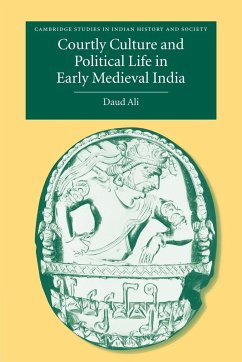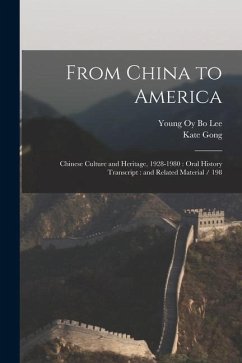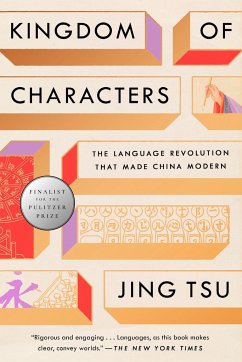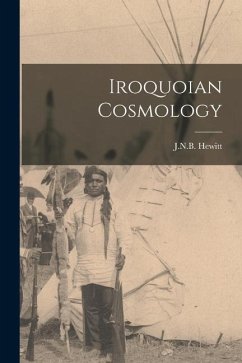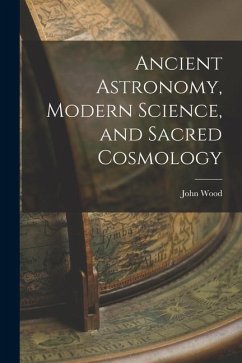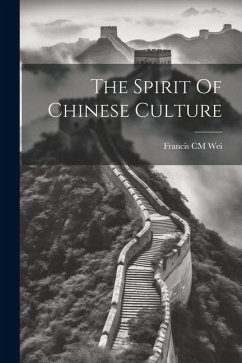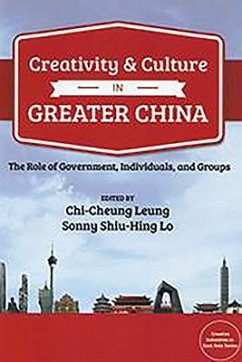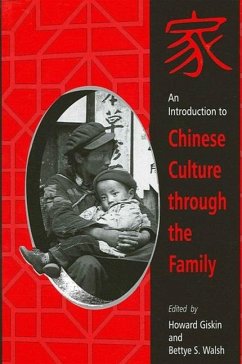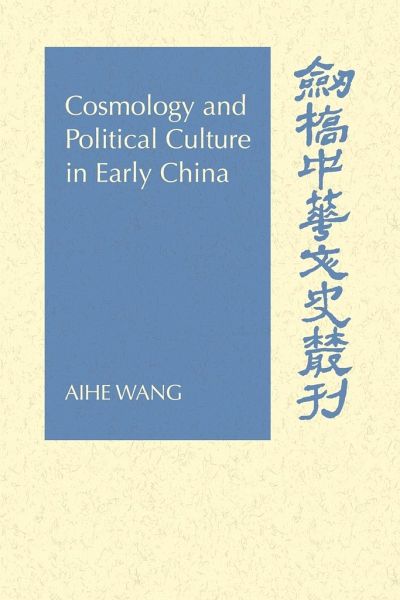
Cosmology and Political Culture in Early China
Versandkostenfrei!
Versandfertig in 1-2 Wochen
54,99 €
inkl. MwSt.

PAYBACK Punkte
27 °P sammeln!
Tracing the central role played by cosmology in the formation of China's early empires.This radical reinterpretation of the formative stages of Chinese culture and history traces the central role played by cosmology in the formation of China's early empires. It crosses the disciplines of history, social anthropology, archaeology and philosophy to illustrate how cosmological systems, particularly the Five Elements, shaped political culture. By focusing on dynamic change in early cosmology, the book undermines the notion that Chinese cosmology was homogeneous and unchanging. By arguing that cosm...
Tracing the central role played by cosmology in the formation of China's early empires.
This radical reinterpretation of the formative stages of Chinese culture and history traces the central role played by cosmology in the formation of China's early empires. It crosses the disciplines of history, social anthropology, archaeology and philosophy to illustrate how cosmological systems, particularly the Five Elements, shaped political culture. By focusing on dynamic change in early cosmology, the book undermines the notion that Chinese cosmology was homogeneous and unchanging. By arguing that cosmology was intrinsic to power relations, it also challenges prevailing theories of political and intellectual history.
Review quote:
"...an ambitious reexamination of the origins and development of Wuxing...it brilliantly clarifies this central component of traditional Chinese imperial statecraft as it was forged in the hands of Confucian ideologues throughout the duration of the Han dynasty."
The Journal of Religion
"This is an excellent book, valuable for its deft use of previous scholarship to describe the interaction of politics and religion. Cosmology and Political Culture in Early China succeeds both as an attack on essentialism and as a description of relationships between political ideals and cosmologies in pre-imperial and early imperial times. It clearly conveys its central message that Chinese cosmology changed over time in conjunction with political changes...Wang provides the most elegant and accurate descriptions that have yet been offered in English of certain fundamental structures. For this reason alone this book should receive wide circulation."
Harvard Journal of Asiatic Studies
Table of contents:
List of illustrations; List of tables; Acknowledgements; 1. Introduction; 2. Sifang and the center: the cosmology of the ruling clan; 3. Wuxing: cosmology in historical transition; 4. Moralizing cosmology and transforming imperial sovereignty; 5. Contesting emperorship: the center of the cosmos and pivot of power; Conclusion: cosmology and power reconsidered; List of abbreviations; Works cited; Index.
This radical reinterpretation of the formative stages of Chinese culture and history traces the central role played by cosmology in the formation of China's early empires. It crosses the disciplines of history, social anthropology, archaeology and philosophy to illustrate how cosmological systems, particularly the Five Elements, shaped political culture. By focusing on dynamic change in early cosmology, the book undermines the notion that Chinese cosmology was homogeneous and unchanging. By arguing that cosmology was intrinsic to power relations, it also challenges prevailing theories of political and intellectual history.
Review quote:
"...an ambitious reexamination of the origins and development of Wuxing...it brilliantly clarifies this central component of traditional Chinese imperial statecraft as it was forged in the hands of Confucian ideologues throughout the duration of the Han dynasty."
The Journal of Religion
"This is an excellent book, valuable for its deft use of previous scholarship to describe the interaction of politics and religion. Cosmology and Political Culture in Early China succeeds both as an attack on essentialism and as a description of relationships between political ideals and cosmologies in pre-imperial and early imperial times. It clearly conveys its central message that Chinese cosmology changed over time in conjunction with political changes...Wang provides the most elegant and accurate descriptions that have yet been offered in English of certain fundamental structures. For this reason alone this book should receive wide circulation."
Harvard Journal of Asiatic Studies
Table of contents:
List of illustrations; List of tables; Acknowledgements; 1. Introduction; 2. Sifang and the center: the cosmology of the ruling clan; 3. Wuxing: cosmology in historical transition; 4. Moralizing cosmology and transforming imperial sovereignty; 5. Contesting emperorship: the center of the cosmos and pivot of power; Conclusion: cosmology and power reconsidered; List of abbreviations; Works cited; Index.





